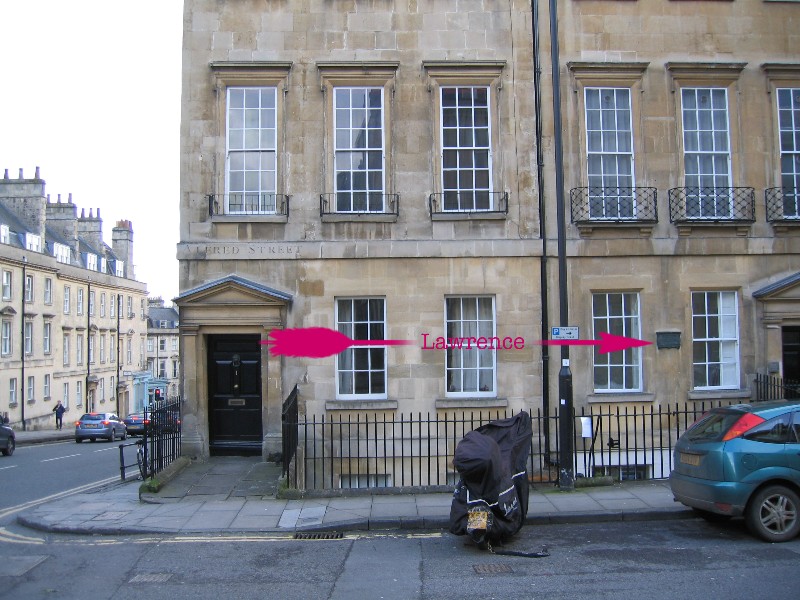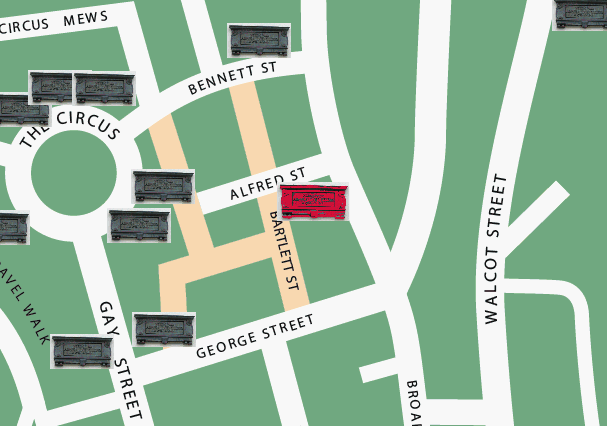Sir Thomas Lawrence
Who was he?
Wikipedia:
Sir Thomas Lawrence RA (13 April 1769 – 7 January 1830) was a notable
English painter, mostly of portraits. The best display of Lawrence's
work is in the Waterloo Gallery of Windsor, a collection of much
historical interest, along with his famous painting of the Duke of
Wellington. "Master Charles William Lambton" also known as "The Red
Boy" (1825), painted for Lord Durham at the price of 600 guineas, is
regarded as one of his best portraits.
Why was he in Bath?
He was born in Bristol. His father was an innkeeper, first at Bristol
and afterwards at Devizes, and at the age of six Lawrence was already
being shown off to the guests of the Bear as an infant prodigy who
could sketch their likenesses and declaim speeches from Milton. In 1779
the elder Lawrence had to leave Devizes, having failed in business and
Thomas's precocious talent began to be the main source of the family's
income; he had gained a reputation along the Bath road. His debut as a
crayon portrait painter was made at Oxford, where he was well
patronized, and in 1782 the family settled in Bath, where the young
artist soon found himself fully employed in taking crayon likenesses of
fashionable people at a guinea or a guinea and a half a head.
He was chosen President of the Royal Academy (P.R.A.) in 1820 and held
the office until his death in 1830.
He lived at 2, Alfred Street Bath, for five years:


The text reads
"Here Lived Sir Thomas Lawrence P.R.A. 1783-1788."
Location map of 2 Alfred Street:
(c) 2011
Bath-Heritage.co.uk | Contact us|




